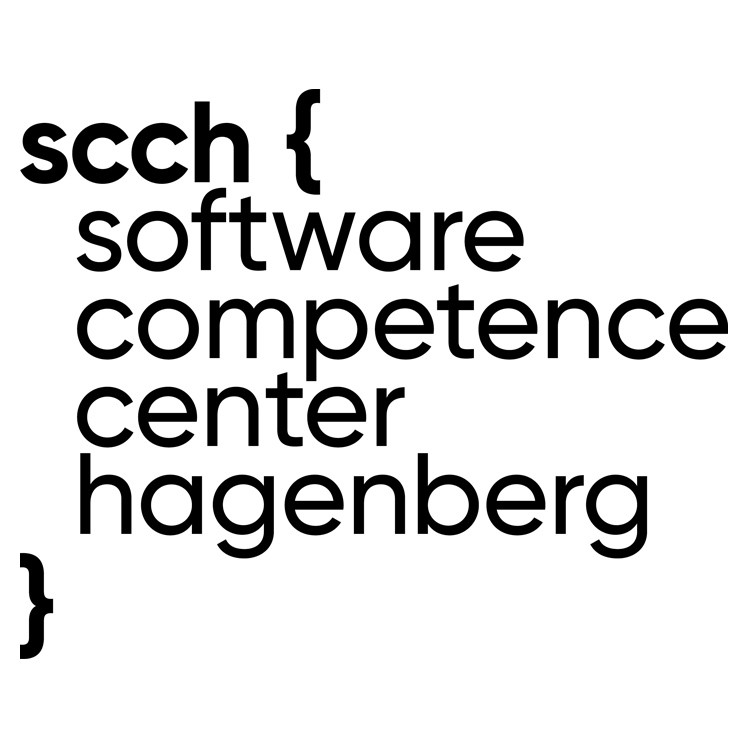
SCCH - Software Competence Center Hagenberg
SCCH - Software Competence Center Hagenberg GmbH
Software Competence Center Hagenberg (SCCH) is a non-university research center that has been driving excellence in applied research in the fields of data science and software science for over 20 years. This focus enables optimal implementation of projects in the fields of digitalization, Industry 4.0 (the smart factory) and artificial intelligence. SCCH serves as an interface between international research and domestic industry, and SCCH researchers conduct world-class research.
Softwarepark 32a
Hagenberg
4232
Austria
48.3702369
14.5137911
Dipl.-Umweltwiss. Mag. Markus Manz
markus.manz@scch.at
www.scch.at
Services
For private sector:
- COMET-Funding and Expertise in national and international funding projects.
- Consutling for Start-ups and information regarding special funding possibilities.
For public sector:
- Expertise in national and international funding projects.
Equipment / infrastructure
Basic overview of the technology background, equipment and infrastructure available: SCCH is the only COMET center that focuses on data and software science. Excellent research is conducted in both areas at SCCH. More than 100 researchers offer experience in the fields of informatics, mathematics, biological-informatics and mechatronics. SCCH is inolved in different networks and offers state of the art research. SCCH bundles and integrates national and international scientific competencies and expands its contacts to scientists and scientific institutes in Austria and abroad in a project- and future-oriented manner. SCCH currently cooperates with more than 60 research institutions in Austria and abroad. This scientific networking contributes sustainably to the development of the Austrian research landscape.Best practices / case studies of cooperation
Privacy Preserving Machine Learing for Industrial Applications (PRIMAL)
- However, for industrial applications, large homogeneous datasets, as required for Deep Learning, are often not available. Transfer Learning alleviates this problem by allowing models to be built on different (but related) datasets. Another promising approach is to share distributed data (e.g., from different departments and companies) to build models collaboratively, although this raises privacy concerns. PRIMAL addresses these problems by developing privacy-preserving Deep Learning techniques to build shared global models using distributed datasets in such a way that each dataset remains privately owned by each individual. The goal is to protect private data of each individual while enabling machine learning-based analysis of everyone's aggregate data as a whole.
Human-AI Teaming Platform for Maintaining and Evolving AI Systems in Manufacturing (TEAMING.AI)
- The EU-funded TEAMING.AI project aims to achieve a breakthrough in smart manufacturing. By introducing a new teaming framework for humans and AI, manufacturing processes will be optimised: The greatest strengths of the two elements can thus be maximised, while safety guidelines and ethical requirements are checked and adhered to.
Blastozysts
- The aim of the research project is to improve the quality assessment of blastocysts using machine learning methods (AI - artificial neural networks) in such a way that the probability of pregnancy through IVF is increased. In particular, the aim is to be able to predict blastocyst quality with a higher accuracy than the mean consensus of a group of specialised clinicians.
Extracting Knowledge from Software
- The SCCH has eKNOWS developed. This analysis platform helps to extract this knowledge from the source code again and to present it in an understandable way. Depending on the domain, this can be mathematical formulas, decision tables, data flows or calculated curves.
AI accelerates organic precision farming
- Deep-learning approaches are now being used to develop plant models that can not only recognise crops but also determine exactly where stems or roots are located
Keywords
Data Science, Predictive Analytics, Transfer Learning, Predictive Maintenance, Fault Detection, Big Data, Stream Data Processing, Machine Learing, Software Science, Interface Design, Security, User-Centered Software Engineering, Software Test, Artificial Intelligence, Human-AI-Teaming, Artificial Intelligence Standards, High Performance Computing





